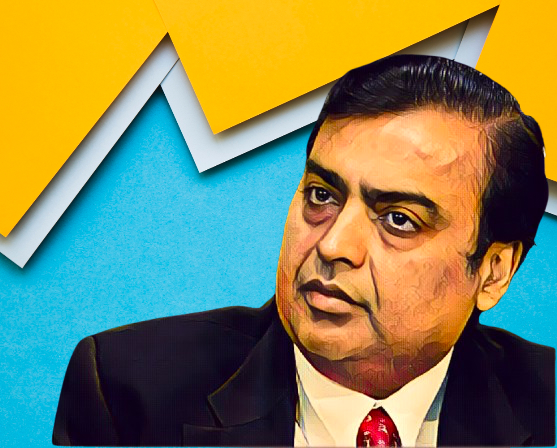KEY POINTS
- Ghana banks on Ambani-backed NGIC’s 5G rollout to cut data costs and boost economic growth.
- Affordable broadband aims to expand connectivity, spurring rural and urban business activity.
- Reliance, Nokia, and Microsoft support NGIC’s 5G network, with local stakeholders owning a majority stake.
Ghana, a West African nation grappling with a severe debt crisis, is placing bets on a new high-speed broadband network, supported by Indian billionaire Mukesh Ambani, to lower data costs and stimulate economic activity.
This initiative is part of a broader effort to revitalize the economy, improve connectivity, and expand digital infrastructure, to empower small businesses and foster growth beyond the nation’s urban centers.
Accra’s NGIC set to launch Ghana’s first 5G
The project, spearheaded by Accra-based Next-Gen InfraCo (NGIC), aims to roll out Ghana’s first 5G network starting this Friday, according to Minister of Communications and Digitalization Ursula Owusu-Ekuful. In a recent interview, Owusu-Ekuful expressed optimism that the introduction of affordable, high-speed internet would “democratize access to high-speed connectivity across the country,” enabling broader economic opportunities in both rural and urban areas.
NGIC’s blueprint mirrors that of Reliance Jio Infocomm Ltd., the Indian telecom giant that reshaped India’s telecommunications landscape in 2016 by introducing low-cost data services and free voice calls. Mukesh Ambani’s Jio venture not only forced consolidation in India’s telecom sector but also rapidly increased internet accessibility across the country, transforming Reliance Jio into India’s largest mobile operator with a subscriber base of over 470 million.
5G rollout in Ghana spurs rural business growth
For Ghana, the anticipated benefits extend beyond internet access. Owusu-Ekuful envisions a similar ripple effect, wherein affordable 5G access will “encourage businesses to sprout up in the countryside and not just in big cities.” By fostering economic zones, NGIC aims to support entrepreneurship and business growth, especially as the nation recovers from a prolonged debt crisis.
The launch of 5G aligns with Ghana’s broader economic initiatives, including an 8.2 billion cedi ($503 million) program led by President Nana Akufo-Addo. This program, which began in July, extends affordable loans to small and medium-sized enterprises (SMEs) that make up approximately 70% of the nation’s GDP. Notably, Ghana’s economic growth saw an uptick in the second quarter, climbing to 6.9% from 4.7% in the previous quarter, though this surge was largely driven by mining. Despite these improvements, Ghana’s annual growth is still below pre-pandemic levels of at least 6%, highlighting the need for continued economic stimulus.
NGIC secures $125 million deal for exclusive Ghana 5G
Under a ten-year, $125 million spectrum acquisition agreement with Ghanaian regulators, NGIC holds exclusive rights to deliver 5G services in Ghana. This exclusivity arrangement allows NGIC to offer lower-cost service, with other operators such as MTN Ghana, Telecel Ghana, and AT (formerly AirtelTigo) leasing the 5G network to provide services to their customers.
The project has attracted several strategic partners. Radisys Corp., a subsidiary of Reliance Industries Ltd., will supply NGIC with essential network infrastructure, applications, and smartphones. Nokia Oyj, Tech Mahindra Ltd., and Microsoft Corp. are also collaborating to support NGIC’s rollout. Two local Accra-based firms, Ascend Digital Solutions Ltd. and K-NET, hold a combined 55% stake in NGIC, with the Ghanaian government holding a 7.5% carried interest.
Despite Ghana’s current internet penetration of roughly 70%, the government aims to bridge the gap entirely within the next six years. For a nation eager to leverage digital transformation to fuel economic recovery, NGIC’s 5G rollout presents a pivotal opportunity




